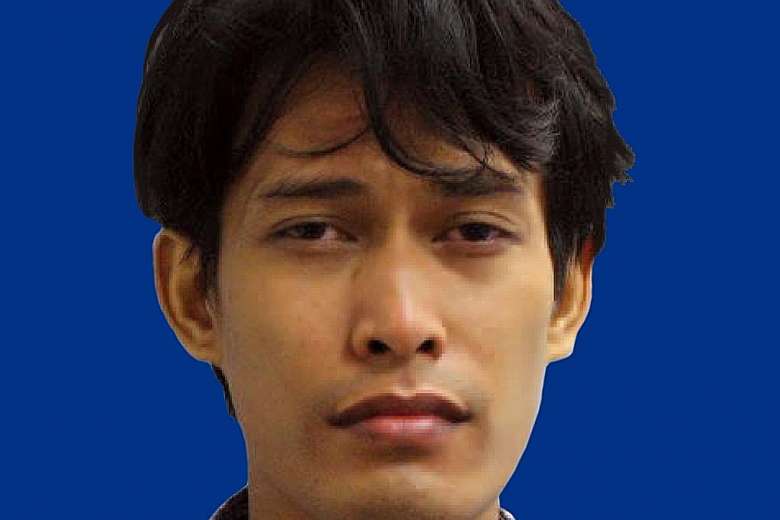by Zakir Hussain, Deputy Political Editor StraitsTimes
Firman Fitrialnedi, 30, was working in an Indofood factory in Pekanbaru, Riau, in Sumatra. Muhammad Rizka Fajri, 26, from the same city, was working at a fruit juice stall.
The duo got to know each other through Facebook and by October last year, they had made plans to travel to Syria to fight alongside militant group Islamic State in Iraq and Syria (ISIS).
On Nov 5, they boarded a Citilink flight from their home town to Batam. The same day, they took a ferry to Singapore.
(Above) The dirt trail leading to Pondok Pesantren Ibnu Mas’ud, an Islamic boarding school in Bogor, is barely wide enough for a small car or pick-up truck. (Below) Mr Jumadi, a staff member who claims he handles the school’s community relations, say
Mr Muh Taufiqurrohman, senior researcher at Indonesia-based Centre for Radicalism and Deradicalisation Studies, who believes radicalised individuals will still try to travel to Syria.
But something was amiss.
When Rizka handed over his passport at the immigration counter, an officer noticed it appeared to have been tampered with. It was recently issued, clean, and would expire only in July 2020 – five years away.
Both men were taken aside for questioning.
They had tickets for a flight that was to leave for Chennai, India, on Nov 6, as well as tickets from Chennai to Abu Dhabi and then on to Istanbul, Turkey, a common gateway for those heading to Syria.
Regional intelligence authorities familiar with the case said it appeared that once in Turkey, they would meet a contact who would take them across the border.
The two men were supporters of ISIS and had been in touch with members of its South-east Asian unit Katibah Nusantara.
Like many of their peers, they were active on Facebook and before long, were introduced to each other by a mutual friend – Rafiqa Hanum, who is in her early 30s, and lives in Raqqa, Syria.
Rafiqa is the first wife of Bahrun Naim, a leader of Katibah Nusantara who uses the moniker Abu Aisyah.
Through Facebook, Bahrun Naim got the two men to agree to travel to Syria and made arrangements for their journey from Pekanbaru.
He told them to travel through Singapore as backpackers – instead of flying directly from Indonesia to Syria – to avoid rousing the suspicion of the authorities along the way.
Already radicalised, the two said they did not intend to return home and were willing to die in Syria.
But after being nabbed in Singapore, they were sent back on Nov 6 to Batam, where Indonesian counter-terrorism police questioned them for several days.
Under Indonesian law, the two men did not commit a crime because they were planning, but had yet to join ISIS.They were flown back to Pekanbaru, questioned further and released.
Mr Muh Taufiqurrohman, a senior researcher at Indonesia-based non-governmental organisation Centre for Radicalism and Deradicalisation Studies, believes individuals like them will still try to travel to Syria. “Joining and fighting for ISIS in Syria is the dream of most of ISIS’ supporters,” he said.
What is equally worrying is that there is a cell of ISIS supporters in Riau that recruits others through discussions on Facebook, WhatsApp and Telegram, he said.
Led by a man named Erik, also known as Abu Vikran, cell members learn about ISIS ideology and get to hear from supporters in other provinces as well as Indonesian fighters in Syria through group chats.
Those active in the network include a man now in police custody – Abdul Karim alias Abu Jundi from Central Java, who recruited others under the supervision of a former inmate close to ideologue Aman Abdurrahman.
In October last year, Abu Jundi and a friend travelled to Pekanbaru to meet cell members, and held a gathering at a mosque where he told participants how they could join ISIS in Syria.
They also discussed bomb-making skills training.
On his return, Abu Jundi continued to deliver ISIS-linked materials to participants every evening.
Mr Taufiqurrohman noted that while their ultimate plans were to migrate to Syria and fight for ISIS, they also targeted police as well as Shi’ite and Buddhist communities.
In late November last year, two Riau cell members – Riswandi and Yudinov Saputra – travelled to Sukoharjo, Central Java, and met Abu Jundi and another ISIS supporter from West Java, Zainal Akbar, to plan attacks on Shi’ites in Java and Riau.
By Dec 20, the police uncovered their plans and arrested all four men.
Published by StraitsTimes, 6 Mar 2016

